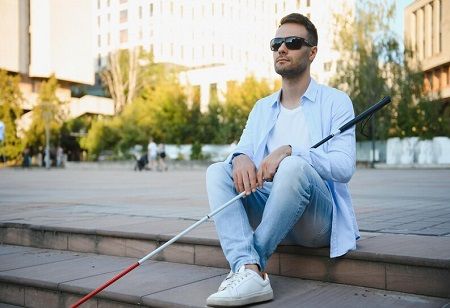India Pharma Outlook Team | Monday, 31 March 2025

A new report has thrown light on the difficulty suffered by deaf and blind people in procuring medicines and medical devices. Experts warned against major deficiencies in packaging design, ordering processes, and the availability of accessible information that locked many out from independently managing their health.
Patients with sensory impairment, especially those with vision loss and diabetic conditions, have been found to experience barriers through the medication process. Most of them find instructions difficult if not impossible to read, cannot operate their medical devices independently, or are given inadequate support from health professionals.
The survey solicited complaints about vision impairment and consulted patient organizations. According to the study results, access-technological, oral and written, affects communication flow between healthcare professionals and patients. The increase in risk for complications, especially for blind patients, was because treatment could not be easily managed due to conditions such as type 1 diabetes.
The report, which comes at a time when one coroner has raised concerns over the lack of British Sign Language interpreters for deaf patients with mental health problems, has highlighted that even a small lack of an interpreter will lead to inadequate mental health services. Such a case was experienced by Imogen Nunn, who could not find suitable support before she died, said Coroner Penelope Schofield.
Health organizations including RNIB and RNID are therefore calling for urgent accessibility improvements in healthcare. They highlight the fact that safe access to medicines is a basic right of man, crying out to regulators to act with immediacy. NHS England affirms its legal duty to provide accessible healthcare and aspires to improve patient engagement in seeking better safety and outcomes.
'The findings of this research make it clear that people with hearing loss, blind people or people with sight loss continue to face risk of harm because their needs are overlooked. This is unacceptable. Access to safe medicines and medical devices is a basic human right, and RNID fully supports any action that urgently addresses these concerns so that the barriers people face are removed", said Rob Geaney, Head of Policy Hearing Loss Charity RNID.
"Inaccessible healthcare information leads to people missing vital appointments, being unable to discuss symptoms and treatment plans properly and needing to rely on the help of family and friends to communicate with healthcare providers. The impact of failing to provide information in the correct format is not just a safety issue. It’s about giving every patient an equal chance to make informed decisions about their healthcare", added Louise Ansari, Chief Executive of Healthwatch England.